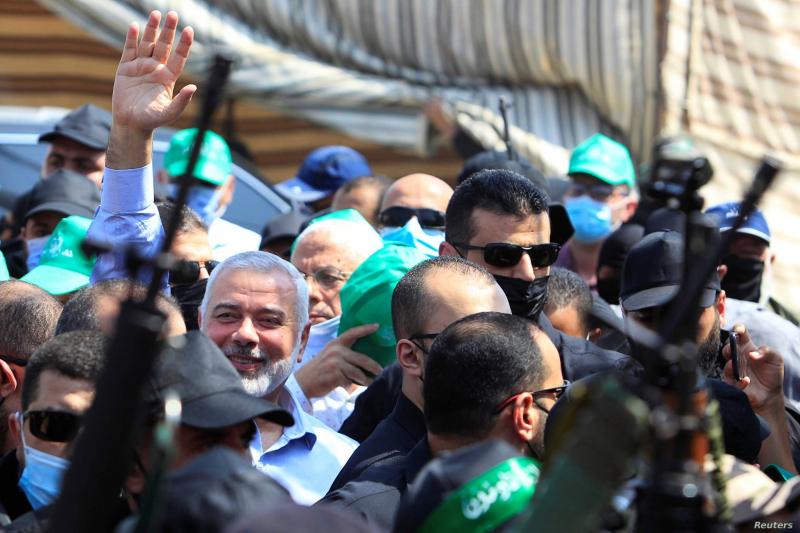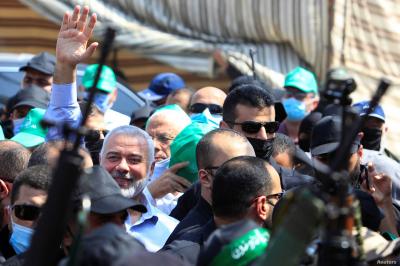Iran's stance on the ongoing war between Israel and Gaza, which threatened to ignite a direct confrontation between Tehran and Tel Aviv, shows a cautious strategic thinking rather than mere ideological slogans. Despite messages from Iranian officials urging Supreme Leader Ali Khamenei to engage in the conflict to support Hamas, the likelihood of a broader regional war remains low. The American magazine "Foreign Policy" outlined at least seven reasons why Iran is likely pursuing a path to avoid starting a war with Israel on behalf of Hamas.
First, the report states that Iran cannot mobilize Iranian society for a new war like it did during the Iran-Iraq war in the 1980s, when continuous mobilization was crucial in resisting the Iraqi army. Decades later, support for the political regime has waned, exacerbated by recent protests and an economic crisis fueled in part by U.S.-led sanctions, alongside growing discontent among the youth and middle class.
Second, the moderate faction within the Iranian government has warned against direct Iranian involvement in the war. The report noted that the conflict in Gaza has intensified political divisions in Tehran. According to Iranian hardliners, the destruction of Hamas automatically correlates with Hezbollah's subsequent collapse and, ultimately, a military attack on Iran, driving them to support targeting U.S. bases in Iraq and Syria through Iranian proxies. However, this view sharply contrasts with moderates' perspectives, particularly that of Mohammad Javad Zarif, who has consistently cautioned against the destructive consequences of possible Iranian involvement in a war with the U.S.
Third, the report highlights that Israel's observable failure to deter Hamas's attack on October 7 does not change Tehran's strategic calculations regarding Israel. Despite Israel's reliance on advanced defensive technologies like the Iron Dome, Hamas delivered a significant military and intelligence blow, undermining Israel's long-standing deterrence strategy. Yet, this does not present Iran with an opportunity to challenge Israel militarily.
Fourth, contrary to popular belief, neither Hamas nor Hezbollah are mere Iranian proxies; they are better viewed as allies, with their own agendas. Although Hamas aligns its actions with Iran, there have been notable divergences, particularly during the Syrian civil war when Hamas supported Sunni rebels opposing Syrian President Assad.
Fifth, the report noted that Iran's strategic partners, Moscow and Beijing, have not fully endorsed Hamas. Iran seeks alliances with China and Russia within its "Look to the East" policy and thus would be reluctant to jeopardize relations with these nations. It follows a wait-and-see approach similar to its stance during the Taliban's takeover of Kabul two years ago, aiming to avoid isolation in major international crises.
Sixth, there is a profound belief among Iranian decision-makers that the Arab Gulf monarchies would welcome a large-scale war between Iran and Israel. Iran does not expect Arab countries to sever relations with Israel as a result of an extensive war, and it reminds that Arab public opinion holds little sway over their countries' foreign policies.
Seventh, the final and most significant factor influencing Iran's clear reluctance to engage in war is Khamenei’s pragmatic perspective on regional conflicts, which runs counter to the prevailing Western view. This pragmatic approach guided Iran's relatively measured response following the U.S. assassination of General Qassem Soleimani, aligning with its broader strategy for managing regional crises.
The interconnected seven reasons explain Iran's hesitance to become embroiled in war on behalf of Hamas. Moreover, the conflict in Gaza could accelerate Iran's nuclear program, as many voices, primarily from the hardline camp, argue that Iran's most critical tool for preventing Hamas's destruction relies on fully acquiring nuclear capabilities. They believe Iran's leverage lies in threatening to develop nuclear weapons while demonstrating critical support for its allies—similar to its past support for Assad's regime in Syria.
In conclusion, "Foreign Policy" asserts that this does not mean Iran wishes to abandon Hamas, which represents its strategic asset in Gaza. Rather than remaining passive, Tehran is likely to continue applying pressure on both Israel and the U.S. through Hezbollah and its proxies in Iraq and Syria, without escalating the conflict to a wider regional war.




